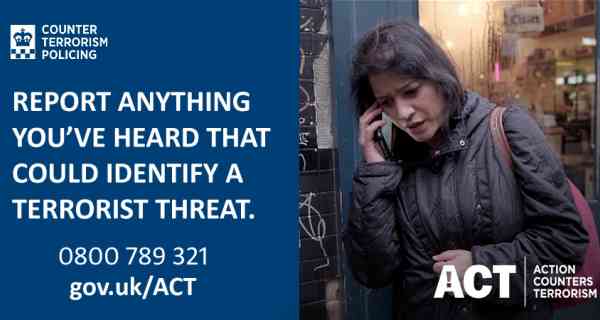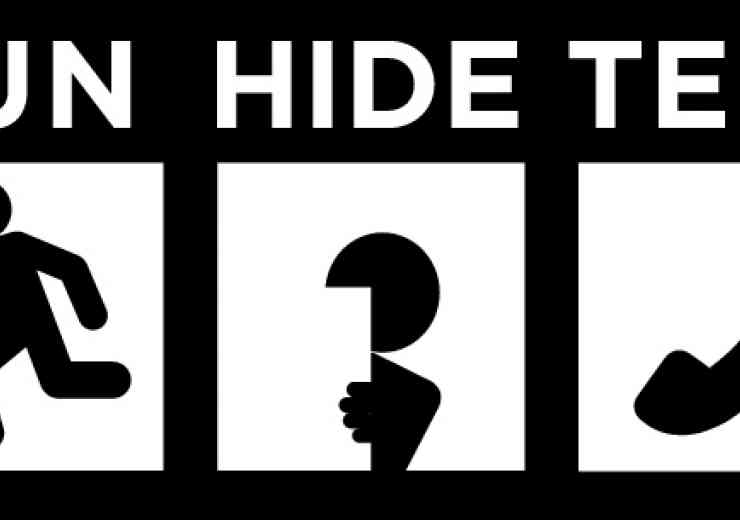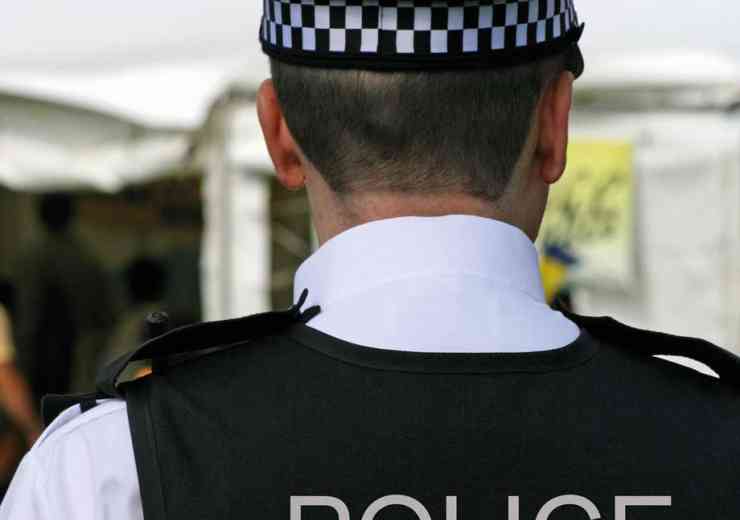
Engaging with the public to prevent terrorism
Following the nationwide launch of the Make Nothing Happen campaign, the National Police Chiefs’ Council explains how officers are urging the public to stay alert, report suspicious behaviour and help prevent attacks like those seen in Westminster last month
Even in the hi-tech world of counter terrorism policing, a good old fashion tip-off from the public is still welcome. In fact, it could be more important than ever. To press the point home, the latest campaign from the National Police Chiefs’ Council is calling on the public to play a part in tackling terrorism by contacting police if they have any concerns about suspicious behaviour. Officers are keen to spread the message that the key to preventing an atrocity like that seen in Westminster could rest with anyone.
With the widespread availability of encrypted communications, and the increasingly rapid speed at which vulnerable individuals can be radicalised, police want a whole-community approach to help spot and stop would-be attackers. Ultimately one short call or online report to police could help prevent mass murders like those seen in London, Nice, Berlin, Brussels and many other towns and cities across the globe.
The ‘Make Nothing Happen’ campaign, costing £750,000 and rolled out nationwide, aims to demonstrate to the public how they can help strengthen the intelligence pictures held on the UK’s top terror suspects and those yet to come to police attention. Launched in Manchester just weeks before the Westminster tragedy, it is the first project under the new CT Policing branding platform, ACT: Action Counters Terrorism. This is an innovative new tool to bring all counter terrorism campaigns under one banner, urging the public to act on their instincts and report suspicious activity to the police.
At the launch senior officers revealed that ordinary members of the community had contributed important intelligence to around a third of their current ‘high-risk’ investigations. This included providing new leads or corroborating facts for around 30 on-going cases. However, while grateful for the assistance, officers explained they were keen to understand how this figure could be increased, and what the barriers are preventing people from picking up the phone and sharing what they know.
As a result, National Counter Terrorism Policing HQ commissioned research that threw up some interesting results and illuminated public attitudes towards the extremist threat. On the plus side, the findings showed there was generally a positive attitude about the work CT police were doing to keep the public safe. The respondents also widely acknowledged that there was a responsibility on all communities to tackle terrorism. However, there was also a notable lack of understanding of what suspicious behaviour might look like, and almost a quarter of participants said they would not report concerns for fear of being thought time wasters.
Lucy D’Orsi, deputy assistant commissioner, appointed the National Police Chiefs’ Council lead for protective security at the end of 2016, said: “The research gave us a real insight into how the public view terrorism, the policing response, and the contribution they can make.
“We found both a desire to help police but also a reticence and we realised we needed to work to overcome the reasons for this. We needed to demonstrate to people that if they call us, and their concern turns out to be nothing, that is absolutely fine. No one is going to get into trouble and our response will be completely proportionate. It's important we convince those who worry they might be wasting our time that we would rather it proves nothing than risk missing something crucial.
"Sadly, just a short time after launching the campaign, we were again appealing for information from the public about a specific individual who had been responsible for the deaths in Westminster of four innocent people and injuries to many more. It was a painful illustration of just how important information from the public could be to us."
The CT policing network
To illustrate these points, the communications effort around the campaign focused on a major press launch, held in Manchester to emphasise the national nature of the CT policing network, producing social media videos, radio adverts and – in a first for policing – a podcast entitled ‘Code Severe’. This outlined two real-life attack planning investigations that received a major boost following calls from the public, and otherwise could have caused mass casualties in crowded places.
BAFTA-nominated actor Mark Strong narrates the tales – one involving a terrorist network plot to cause multiple deaths and injuries with a fertiliser bomb and the other a lone actor who was experimenting with IEDs to detonate in a shopping centre. Both cases resulted in successful prosecutions.
The two accounts include contributions from detectives, surveillance officers and members of the public who made the all-important calls. In one part, a senior investigating officer recounts how an operative planting a listening device in the home of a key suspect realised he was missing a screwdriver after taking an inventory of his equipment. With the suspect due to return at any moment, the officer had to act quickly to recover the missing item before the operation was compromised.
Code Severe went on to reach number two in the podcast charts, beating established offerings from the BBC like the weekly film review and Desert Island Discs.
D’Orsi adds: “We committed considerable funds to the campaign so needed to be innovative in order to get the public's attention. The news agenda is so competitive we looked at breaking new ground by trying something different. A media company worked alongside our communications team to advise us on how to maximise our coverage.
“But the true test of whether the investment was a good one is if we have succeeded in convincing people to feel confident in calling us. We will undertake a full evaluation of the campaign in due course but in the short term we can see that the number of calls we received to the Anti-Terrorist Hotline and online referrals via the gov.uk/ACT website increased following the coverage we received.
"In the first week calls to the hotline were up 67 per cent and referrals to the Counter Terrorism Internet Referral Unit almost quadrupled. We were trending at number two on Twitter on the first day and increased the number of people following the official @TerrorismPolice by 28 per cent. So the early signs were very encouraging."
D’orsi will be the most senior CT officer speaking at this May’s Security & Counter Terror Expo at Olympia, and will use the opportunity to tell her audience of security professionals that the terror threat is becoming increasingly complex and varied.
In the wake of the incident in Westminster, she will outline the latest developments in the police's approach to protective security.
She comments: “The official threat level remains at 'Severe' meaning an attack is highly likely. It continues to diversify and expand. This is seen in cases where terrorists have been able to reach across the world to radicalise often vulnerable, volatile or chaotic individuals and groups, and inspire and direct them using instant and secure communications.
“Counter terrorism policing is working hard to keep the public safe. Together, the UK intelligence community (MI5, SIS, GCHQ) and police have disrupted 13 UK terrorist attack plots since June 2013. However, advances in technology make it more complex and challenging for us to spot would-be terrorists because it's easier for them to be in contact with others and be radicalised in a relatively short space of time.
“The threat is becoming more varied with a move towards low-tech attacks on crowded places, like those we have seen in London, major European cities and beyond. It is a challenging landscape for us and our international partners."
Police will use this year’s Expo to highlight the work they are currently doing with the haulage industry following the attacks using HGVs in Nice and Berlin which killed 98 and injured hundreds more.
Information sharing with vehicle owners and drivers has been central to raising awareness. Again officers have been reassuring this particular sector that calls to the Anti-Terrorist Hotline to raise concerns will be dealt with proportionately and confidentially by a specialist team.
D’Orsi will also cover the changing pathways to radicalisation, the continuing challenges resulting from the growth of social media and the work being carried out by the world’s first Counter Terrorism Internet Referral Unit (CTIRU). Since the department’s launch in 2010 it has worked with international partners and industry to remove over a quarter of a million pieces of terrorist literature online.
ACT campaign research
The research used to shape the ACT campaign was commissioned by National Counter Terrorism Policing Head Quarters and carried out by an external agency. In total 2,198 adults across England, Wales and Scotland were asked about attitudes towards aspects of CT policing.
Key findings were:
- 73 per cent of respondents said they were concerned about terrorism.
17 per cent (top score) of respondents said the main reason for concern is that terrorism is unpredictable and can affect anyone, anywhere.
75 per cent of respondents said police were working hard to prevent terrorism.
79 per cent of respondents said it was not just the responsibility of the police to tackle terrorism.
83 per cent of respondents said it was important communities work together to defeat terrorism.
29 per cent of respondents said they might not report suspicious behaviour in case their suspicions were incorrect.
39 per cent of respondents said they were unsure what kind of activity they should be reporting.
26 per cent of respondents said they might not report suspicious behaviour as they wouldn't want to be seen as wasting police time.
More information about the ACT campaign, how to contact the Anti-Terrorist Hotline (0800789321) and the CTIRU, can be found at gov.uk/ACT.













